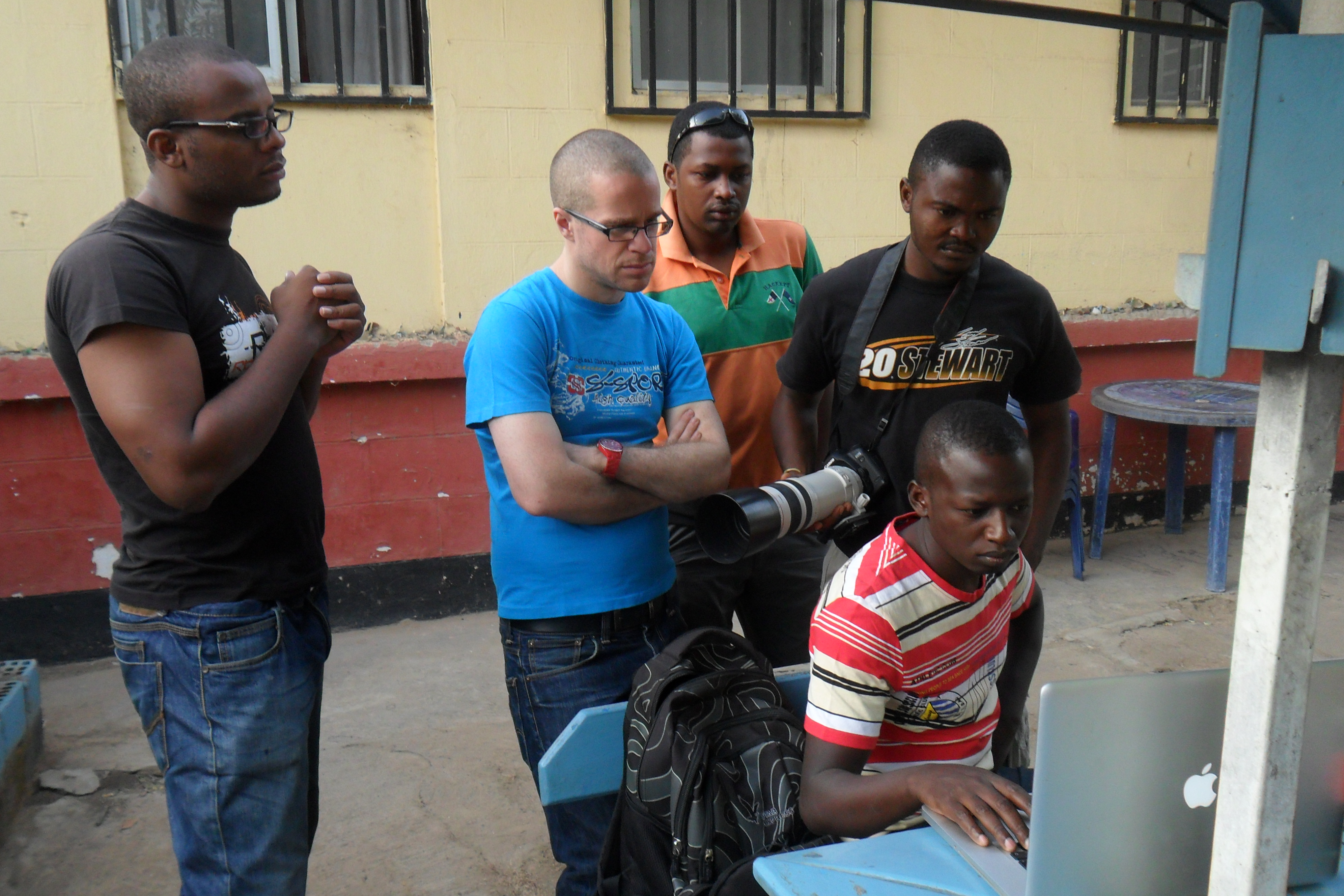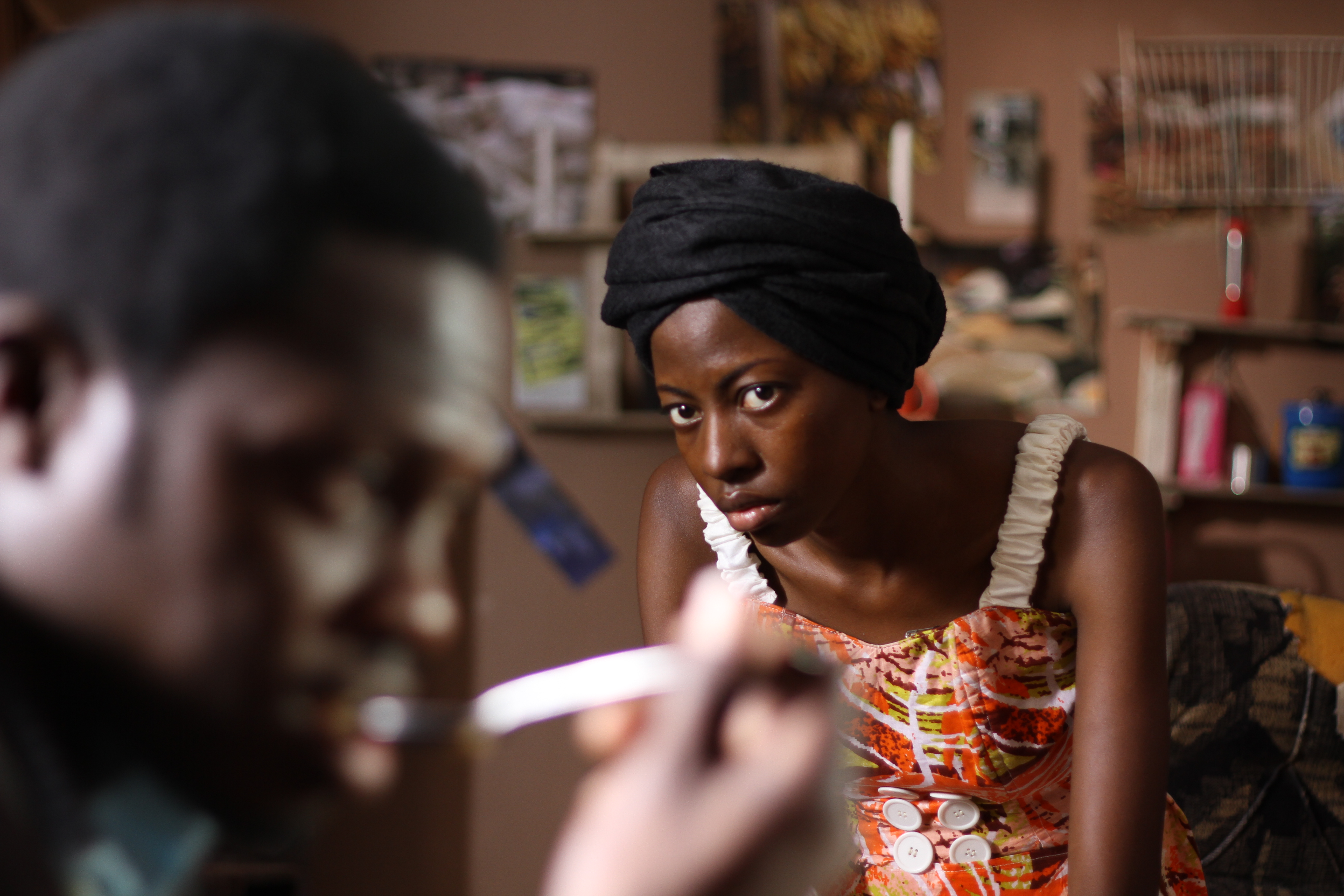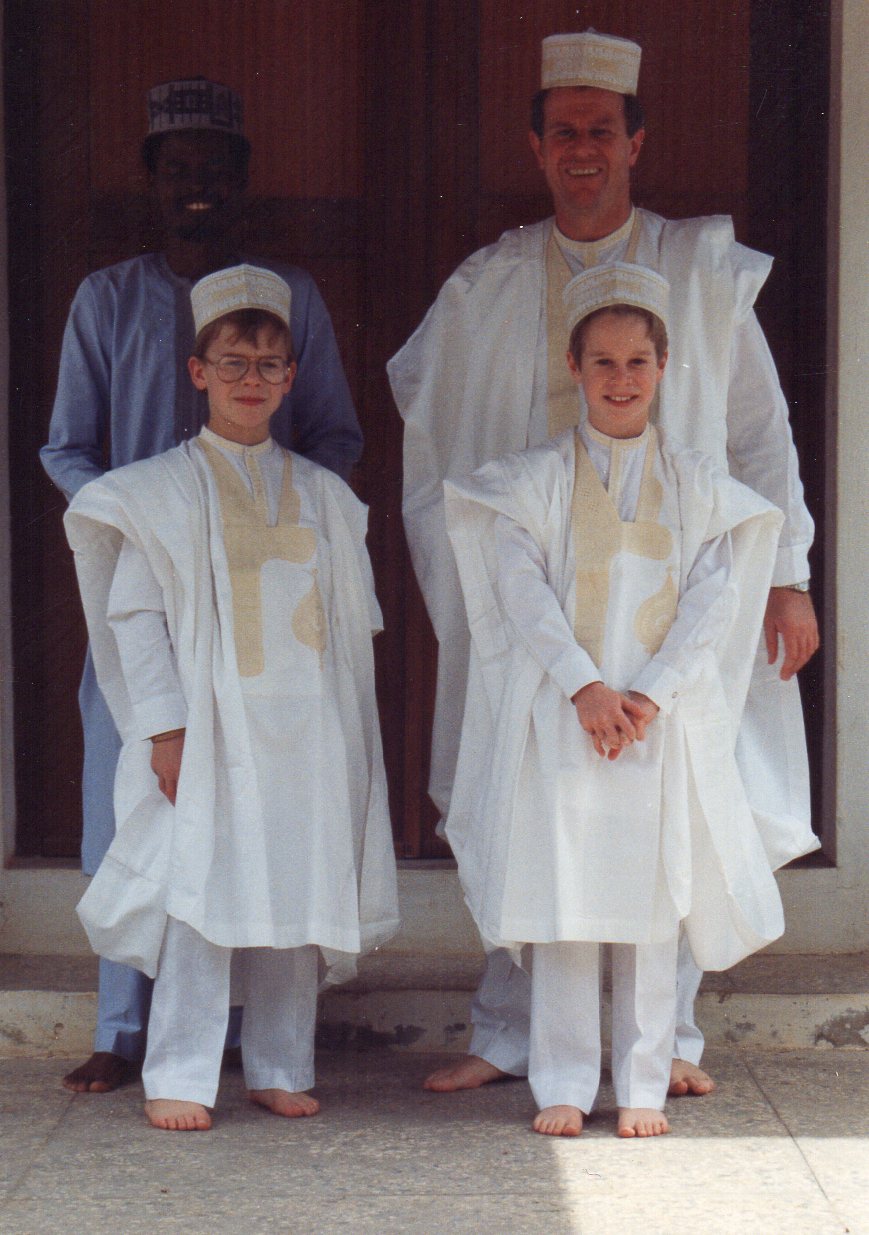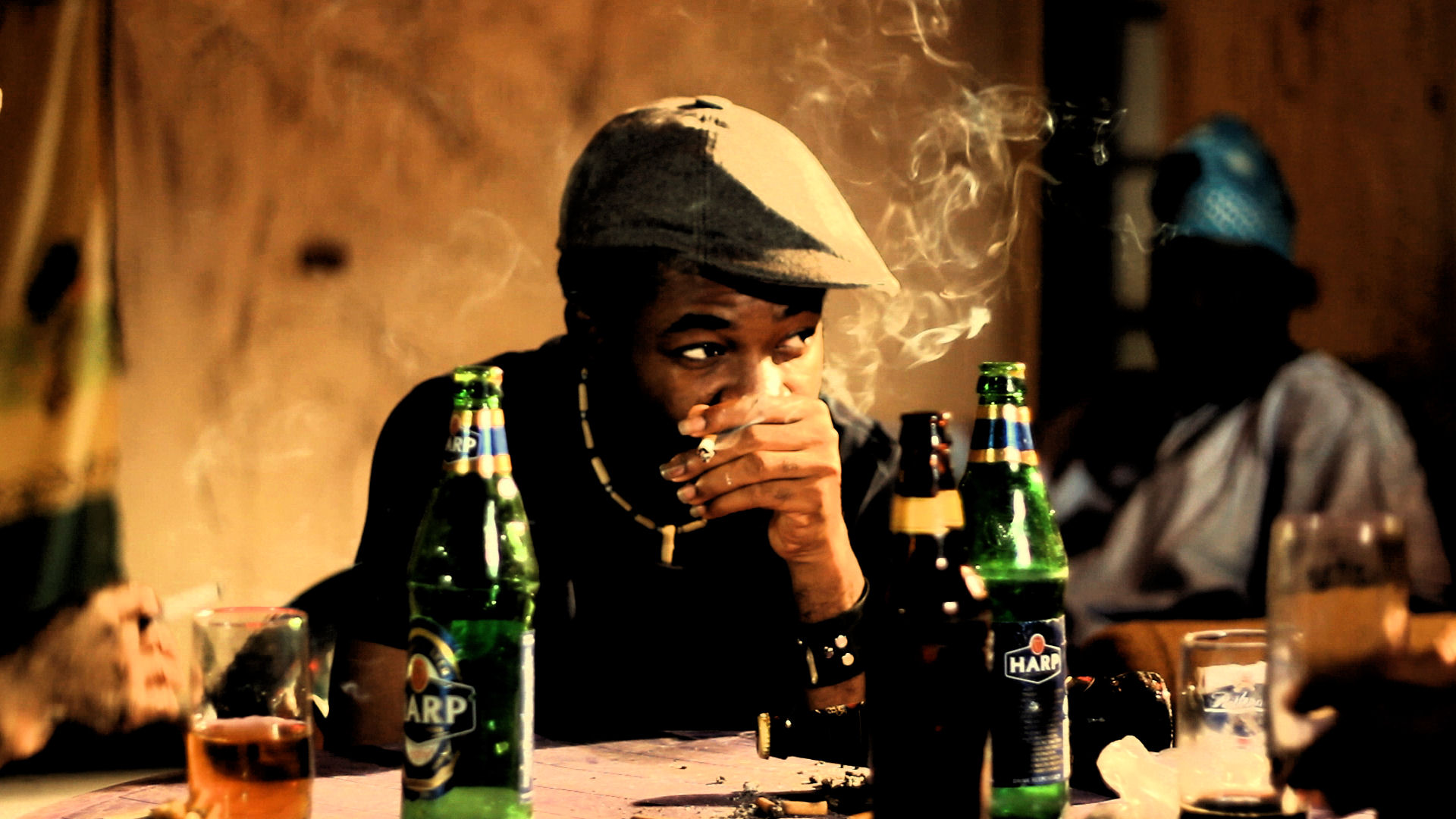Takes balls for an Englishman to wake up one day and head to Nigeria to make it in Nollywood. Takes a miracle for it to happen. Tom Rowlands-Rees tells TRUE Africa how he co-wrote and produced the award-winning film Confusion Na Wa.
It all started in 2006 when I met director Kenneth Gyang at the Berlinale Talent Campus in Germany. The Talent Campus runs alongside the Berlin Film Festival and brings together filmmakers from around the world to attend workshops, lectures and screenings and of course to network. I had made a crude animation in my bedroom as an experiment and it had won a magazine’s short-film competition. The prize was to be a part of this industry melting pot – but I was really out of my depth. People were asking me if I was a producer or a director but I didn’t really know what the difference was. I would tell them I was just a guy who made a film and had won a competition by some sort of accident. I felt out of place.
And so it was refreshing to meet Kenneth. My family used to live in Nigeria; we had a common point of reference. For his part I think it was probably nice to talk to someone who was excited about the idea of Nigerian film. Nigeria is in vogue right now, but it wasn’t back then. We hit it off. He’s a funny guy. I’m a funny guy. We laughed a lot.
Kenneth had this film project about two teenagers in Nigeria and their school football team. He asked me if I had any skills with a ball because he had it in mind to cast me as one of the leads. I was like – dude, I’m a 25-year-old white guy, I don’t think lack of football technique is going to be the biggest barrier to me playing a teenage Nigerian schoolboy.
Kenneth was serious though. He felt this chemistry we had could somehow translate into something entertaining, and that if we made the best darn film we could, race wouldn’t even come into it. While I still think that this was crazy, I admired his optimism. Sadly for me, and the world, my role as the Nigerian teenager with mercurial football skills didn’t happen. I’m 34 now, so I’m not sure it ever will. But it planted the seed in my mind that Kenneth and I did have something special and one day we’d work together.

We carried on exchanging emails and the vibe was still there. I first went to visit Kenneth in Nigeria in 2007, where I also met Kenneth’s friend and our future partner the (now) renowned cinematographer Yinka Edward. I didn’t know about the scale of the Nigerian film industry back then and had never heard the word Nollywood. But I got to hang out on a few sets; I made new friends; and – importantly to me at that age – took lots of pictures which I plastered all over my Facebook profile. I had black friends. In Africa.
Whenever I could get a decent break from my studies or work I would head to Nigeria. People said I was mad – especially Nigerians. I didn’t know where all of this was going but it was fun; I was making new friends and learning new things. Everything I know about filmmaking I learned in Nigeria.
I remember Yinka saying that the first thing white people do when they hear your name is put it into Google to see who you are.
Around 2009 Kenneth asked me to start working on a script that a friend had written. After several iterations it had become something completely new. We called it Confusion Na Wa – a lyrical refrain from the Fela song Confusion. We had no contacts in Nigeria for funding so we decided to start applying for production funding from abroad. I remember Yinka saying that the first thing white people do when they hear your name is put it into Google to see who you are. So I made a website for our bios. That meant we needed to say we were a company, which then meant we needed a name. I’d seen the word ‘kpatakpata’ in some of the dialogue Kenneth wrote in the script. It sort of means total, or complete, or universal. To my European ears it sounded cool and mysterious and I figured potential funders would feel the same way. We originally put Kpatakpata Films but Cinema Kpatakpata sounded a little more francophone and francophone filmmakers pull in foreign money so we went with that. That’s how we started.
Filmmaking is a funny business – most of the time it’s painful and frustrating and draining but there are these moments when everything you do effortlessly falls into place and it’s easy. We had one of those runs. Whether it was the script, the website or our cynically contrived name, we managed to secure a grant of €20,000 from the Rotterdam Film Festival. Then Yinka showed the script to Nollywood legend Ramsey Nouah, whom he had worked with on a previous project, and he liked it so much he offered to act in the film for free and contribute equipment to the production. That kind of thing doesn’t happen, but it did. Kenneth got in touch with Kannywood star Ali Nuhu and he said more or less the same thing as Ramsey. OC Ukeje, who was still an up-and-comer back then, jumped on board… obviously.

It was exciting and it was also scary. There’s a certain comfort in being a filmmaker who hasn’t made anything – a freedom to believe that you are better than the rest without the vulnerability of there being work attached to your name that can be held up for examination and comparison. We used to enjoy chatting shit about African film, three kings in our own little bubble. Now we had no excuse but to step up or shut up.
We were inexperienced; we had a tiny budget; and we were trying to do something different. Inevitably, we made mistakes.
With expectation building we got going with production. Maybe too quickly. Perhaps the gods of African film felt that they had spoiled us with good fortune, that we had grown arrogant and that it was time to see how we fared without their favour. It was the start of a long phase of pain. If you need a sign to show that your luck is changing, it cannot be more clear than your lead actor getting invited to have breakfast with the President of Nigeria on the first day of your shoot and then militants trying to bomb them. Fortunately OC was not near the blast, but we should have heeded the warning. We were inexperienced; we had a tiny budget; and we were trying to do something different. Inevitably, we made mistakes.
Everyone in the crew wanted to do their best but with limited money not everyone was going to get the time or equipment they needed to do their best work. This caused tension. Everyone felt their own corner had compromised enough: arguments broke out and factions formed. At one point the bus taking the cast back to their hotel got stopped by police and they took issue with the celebrities on board. I still don’t know what exactly happened as I wasn’t there, but I somehow ended up on the phone apologising to everyone. Despite backing up our footage, somehow key scenes got lost. A lot of good stuff came from that shoot, but there were things missing and things that didn’t work. What we had was very far from a film that would make us proud.
That was late 2010 and we didn’t have a film for release until mid 2013. The delay was us trying to get back on track. I had a full-time job. Kenneth was working on various projects to pay his bills. So for both of us anything to do with Confusion Na Wa was happening on the side and therefore proceeding at snail’s pace. It was not an easy time for me. After the excitement of getting funding and going into production everyone – family, friends, colleagues – was asking what had happened with that whole Nigerian film thing I always used to talk about. Making Confusion Na Wa had contributed to the end of two relationships and I had nothing to show in return. It was humiliating. I didn’t even know if we had enough money left to finish the film, or that it would make any sense if we did. I just wanted to hide away and pretend we’d never started.
Although we barely had any money by then, the people involved in the project wanted to see it succeed.
But we couldn’t. In the end we took the original edit to pieces and put it back together in a different order. We worked out what else was needed to make the story work in its new form and organised a reshoot. This was 2012. Although we barely had any money by then, the people involved in the project wanted to see it succeed. The issues that had dogged the first shoot were forgotten or forgiven. People rallied round. Some scenes were reworked in Lagos where Yinka lived, some in Kaduna where Kenneth was based. I shuttled between the two carrying the remainder of our cash in my rucksack and Ramsey’s camera in my hand. It was guerrilla filmmaking, but we did some great work.
After I returned to the UK Kenneth got to work adding the new footage to our revised edit. When he sent me a rough copy for feedback I pretended I hadn’t received it for two days; I couldn’t face the prospect that it might be bad. Eventually I had to. And it wasn’t bad. It wasn’t perfect; it bore the scars of our mistakes; but it was actually good. We had a film that, once polished up, people might actually enjoy watching. There was still a lot to do, but there was hope.
I returned to Nigeria to work with Kenneth on completing post-production. Four of us shut ourselves in a room in Kenneth’s house in Bwari – me, Kenneth, Ola the final editor and Rai the soundtrack guy. We had two mattresses on the floor, one desk and some computers. We worked two at a time and slept in shifts. I don’t even know how long we were in there. It is just this sweaty, sleep-deprived memory distorted by malaria pills and generator fumes. The hard drive on the iMac died. We were able to save enough content to continue on another computer, which promptly decided it would go to a white screen every time we rebooted. We googled the symptoms and the internet geek forums seemed to concur that we had reached the point when we could do nothing: the computer was fucked.
As we tried to salvage the situation things took a bizarre turn – a woodpecker landed on the window ledge and proceeded to start a fight with its own reflection, creating a torturous tapping sound that made it impossible to think. We would shoo it away, but it kept on coming back to try and break its unbeatable rival. The film gods obviously still felt we had not been punished enough for our early, carefree arrogance.

Despite these conspiracies of technology, nature and the spirit world, we found an earlier edit of the film on Kenneth’s laptop and that – combined with the backed-up footage – was enough for us to finish Confusion Na Wa. Maybe the gods felt remorse, that with the woodpecker they went too far and it was time to give us a break, because we had another of those amazing runs. There’s not a lot to say when everything seems to be going your way. Basically, we won loads of awards and it was awesome.
One critic wrote that the film was Nigeria’s answer to Pulp Fiction (I love that they said that, but really, that’s a little bit bullshit).
It started with the biggest one – Confusion Na Wa was the shock winner of Best Picture at the Africa Movie Academy Awards. That’s the biggest prize for African film as far as we are concerned (we were saying that before we won, I should add). Journalists wanted to interview us; people were discussing us on social media; festivals were calling us up asking for the film. One critic wrote that the film was Nigeria’s answer to Pulp Fiction (I love that they said that, but really, that’s a little bit bullshit). However much the praise was exaggerated, there was a buzz around Confusion Na Wa and a buzz around us and we loved it.
Distribution is a whole other issue, though. Some people, wise after the fact, have said that Kenneth and I had an award-winning film and no plan of what to do with it. I roll my eyes when I hear that. We had a plan, it’s just that there isn’t much use in a plan if you don’t have money, networks or credible information (be warned, there are lies, damn lies and Nollywood box office statistics). And if your film wins an award it brings all kinds of people to your door. Everyone tells you that everyone else can’t be trusted. So who do you believe?
We argued among ourselves about which deals we should sign. We both picked bad options.
We got worn down and picked off. People were telling Kenneth they would make him a millionaire; people were telling me I was out of my depth and didn’t know what I was doing. I knew I didn’t know what I was doing, but I now know that they didn’t know what they were doing either. They said they I would mess it up on my own. I now know that what they were actually offering was to mess it up for me. We argued among ourselves about which deals we should sign. We both picked bad options. Were there any good options for us to pick, though? I still don’t know.
This is not the whole story of either Confusion Na Wa or my own involvement in Nigerian film. But there is a simple pattern you can see from what I’ve spoken about here: there are good times and there are bad times. An essential quality required to survive in the Nigerian entertainment industry is a glass-half-full attitude. The road to success is longer than we thought it would be, but Confusion Na Wa has equipped us excellently to continue along that road. We learned hard lessons, but the experience and network we have gained is invaluable. We have travelled around the world to film festivals and there is anticipation among that community for our next work. I can still go on Twitter and find people I have never met quoting jokes I wrote. It’s incredibly motivating and I feel we can do much better than Confusion Na Wa.
We have built up a pipeline of new projects and are preparing to execute them on our own terms. While I’m sure there will be times the African film gods decide to make life hard for us again, maybe it is just the tough love that they know we need if we’re going to really make a great film.



